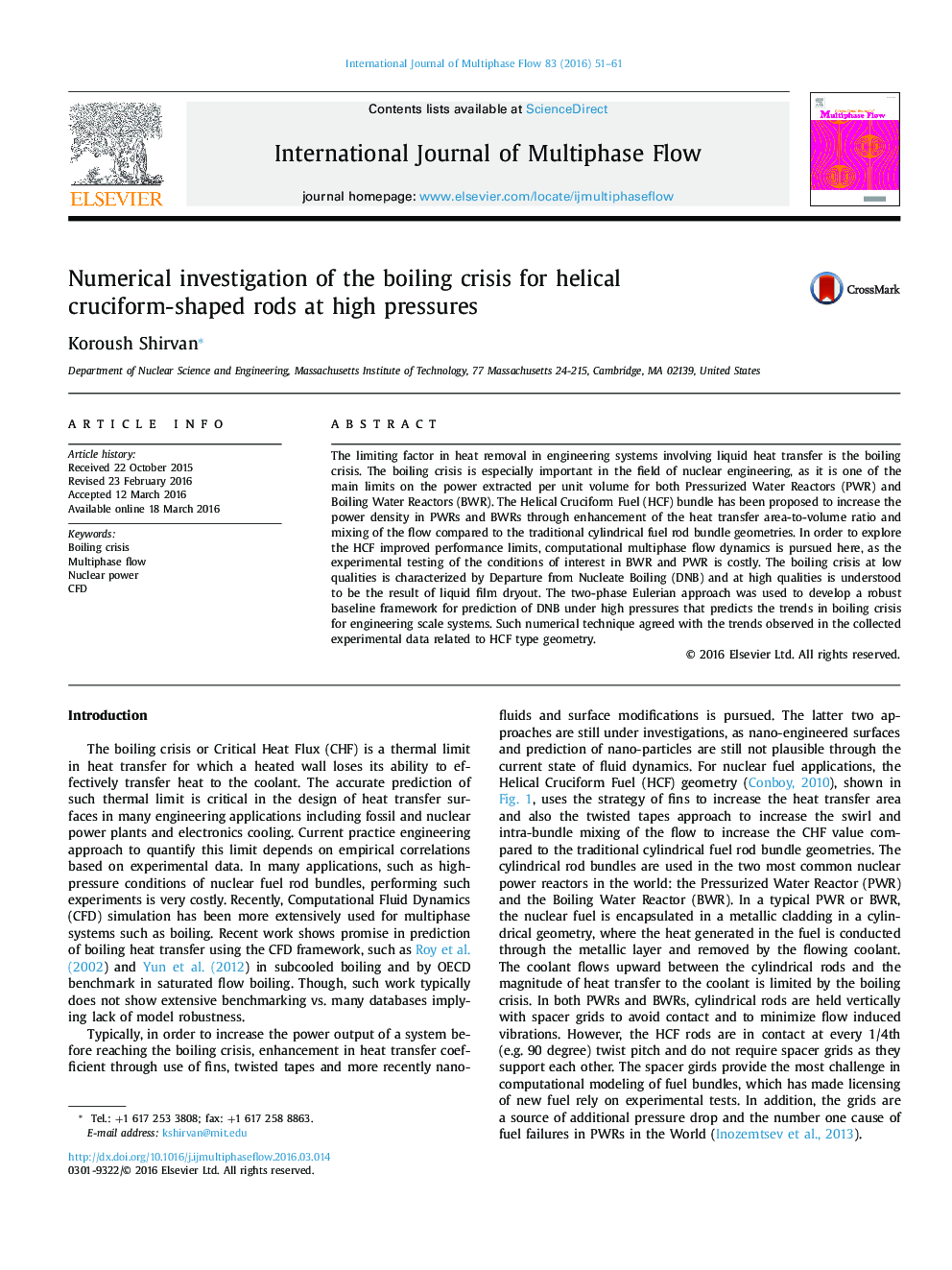| Article ID | Journal | Published Year | Pages | File Type |
|---|---|---|---|---|
| 7060284 | International Journal of Multiphase Flow | 2016 | 11 Pages |
Abstract
The limiting factor in heat removal in engineering systems involving liquid heat transfer is the boiling crisis. The boiling crisis is especially important in the field of nuclear engineering, as it is one of the main limits on the power extracted per unit volume for both Pressurized Water Reactors (PWR) and Boiling Water Reactors (BWR). The Helical Cruciform Fuel (HCF) bundle has been proposed to increase the power density in PWRs and BWRs through enhancement of the heat transfer area-to-volume ratio and mixing of the flow compared to the traditional cylindrical fuel rod bundle geometries. In order to explore the HCF improved performance limits, computational multiphase flow dynamics is pursued here, as the experimental testing of the conditions of interest in BWR and PWR is costly. The boiling crisis at low qualities is characterized by Departure from Nucleate Boiling (DNB) and at high qualities is understood to be the result of liquid film dryout. The two-phase Eulerian approach was used to develop a robust baseline framework for prediction of DNB under high pressures that predicts the trends in boiling crisis for engineering scale systems. Such numerical technique agreed with the trends observed in the collected experimental data related to HCF type geometry.
Related Topics
Physical Sciences and Engineering
Chemical Engineering
Fluid Flow and Transfer Processes
Authors
Koroush Shirvan,
